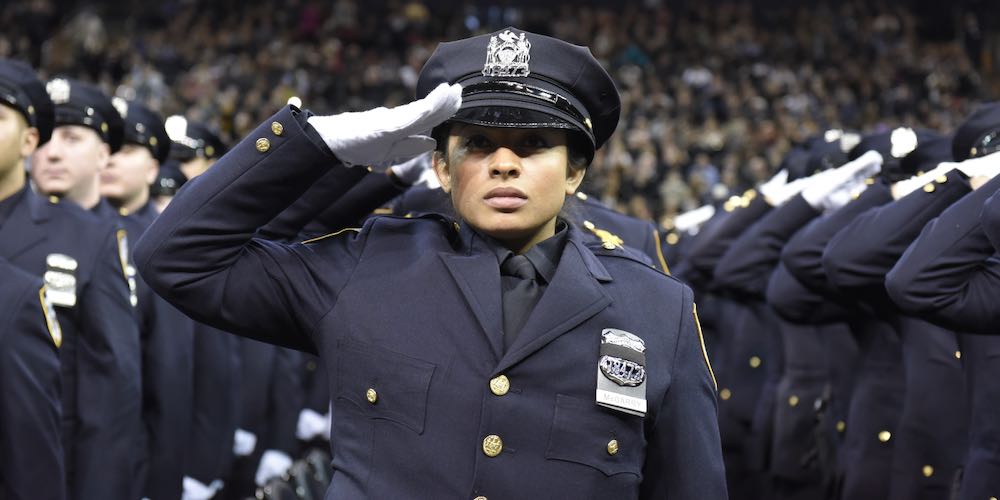Today’s denigration of democracy is unbecoming and unwise, but so too is our elite's apocalyptic thinking.
A Nat-Con Case for Criminal Justice Reform
From the halls of Mar-a-Lago to the streets of Chicago, all Americans have a stake in the fair application of criminal law by a system they can trust. Indeed, there cannot be a policy area in which a principled approach is more important than in criminal justice, where lives and liberties are at stake. So how do the principles of the emergent national conservatism movement apply to criminal justice policy? Can they inform a center-right approach to public safety that draws on the overlap between national conservatism’s Christian worldview and universal truths?
A July 2022 manifesto entitled “National Conservatism: A Statement of Principles” crystallizes the tenets of this movement that seeks to address many Americans’ apprehension about the coarsening of our culture and erosion of our national identity. These concerns naturally implicate the criminal justice system, which becomes the last backstop when society’s norms and institutions from the family to the education system prove inadequate, leaving the law as the only remaining form of social control, weak as it often is.
National conservatism views the arc of every life through a broader family and community lens, a perspective that at least in the criminal justice context is mostly reconcilable with classically liberal thought that emphasizes individual rights and liberties. Indeed, this perspective can be helpful in avoiding the pitfalls of a purely atomistic view of human nature that alone cannot explain the causes of crime or encompass the breadth of the policy solutions needed to prevent it. To be sure, national conservatism’s embrace of a more muscular state in service of traditionalist aims could lead some to assume it necessarily conflicts with sensible limitations on the exercise of government’s most potent power. However, there are several reasons to reject that simplistic narrative and recognize its potential for helping to foster criminal justice policies that properly balance deterrence and accountability with rehabilitation and redemption.
First, national conservatism emphasizes the value of tradition, but many aspects of the current American criminal justice system represent major departures from our intellectual heritage. Perhaps the most profound is the erosion of the jury trial, which has recently been replaced by plea bargaining in nearly every case. Civil asset forfeiture is a policy widely implemented only in the last half-century that is in tension with the constitutional bulwarks of due process and private property rights. Even on incarceration rates, the U.S. was on par with other developed countries prior to the 1970s.
A criminal justice system that is perceived as intrusive and arbitrary erodes the capacity of our criminal laws to express and enforce our shared moral standards.
Second, the manifesto states: “the traditional family is the source of society’s virtues and deserves greater support from public policy.” As necessary as it can be for public safety, reliance on incarceration and fines and fees takes a toll on family formation and preservation. Remarkably, some 40 percent of all children are exposed to the criminal justice system through a caregiver, negatively impacting their development.
Unsurprisingly, imprisonment is highly correlated with divorce, and 28% of the decline in marriage rates since 1960 has been attributed to rising incarceration rates. More broadly, half of young men with a criminal record are unemployed, making them less attractive candidates for marriage. The provision of the First Step Act signed by President Trump that required incarceration to occur within 500 miles of a person’s home was motivated in part by the recognition that family visitation is both a moral imperative and correlated with reduced recidivism.
Third, policies that focus solely on punishment fail to acknowledge that criminal activity is typically a function both of individual choice and of many of the societal problems identified or alluded to in this manifesto, such as family breakdown, loneliness characterized by disconnection from family and community, exposure to violence, and the scourge of fentanyl.
The question of prohibiting alcohol sales on Sunday mornings provides a crucible through which to understand how national conservatives’ openness to government intervention to create conditions conducive to virtue applies to criminal justice policy, and its limits. One prominent signer, Sohrab Ahmari, has advocated restoring blue laws, arguing they align the surroundings with the Sabbath’s purpose of promoting virtue and reflection. This topic was also explored in a podcast at The Daily Signal, where Richard Reinsch interviewed Chris DeMuth, an advocate for local discretion in such matters.
Neither Ahmari nor DeMuth frame the issue as one of crime per se, but a study found the repeal of Pennsylvania’s blue law led to a significant increase in property crime on Sundays around liquor stores in low-income areas. This demonstrates that crime is substantially influenced by environmental factors.
Yet, must we sacrifice liberty for the many, because some take license? Tal Fortgang’s National Review piece compellingly argues that blue laws, whatever their secular benefits, are primarily perceived as impositions of minority views on the population as a whole. This may be inherently unsustainable in a pluralistic democracy.
Even though blue laws are on shaky ground, there are many other less meddlesome ways to vindicate national conservatives’ emphasis on family and community, and recognition of a legitimate government role in creating a social and physical environment most conducive to the habits and activities that align with law-abiding behavior. This goes well beyond liquor stores, where perhaps a more pluralistic solution consistent with property rights is that some neighborhoods most troubled by crime could adopt deed restrictions that would prevent future liquor stores from moving in.
More importantly, this perspective should translate into support for strategies that arguably have an even greater effect on neighborhood safety than whether a liquor store is open on Sunday, such as street lighting and urban blight remediation. Given that not all crimes can be prevented by changing the environment, responses to crime must also reflect the many societal problems that drive criminal conduct by incorporating a broader toolbox for first responders dealing with addiction and mental illness, and investments in diversion and treatment programs like DWI, drug, and mental health courts. These have proven results.
National conservatives should also welcome the scaling back of civil asset forfeiture and policing activities oriented towards generating revenue. By fomenting distrust of police, these contribute to lower rates of reporting and solving crime.
Finally, the manifesto calls for strengthening the rule of law. In crafting criminal justice policies, achieving this vital objective requires anchoring our laws in universal truths and ensuring those charged with enforcing them do so with the level of fairness, accountability, and transparency needed to sustain public confidence. A criminal justice system that is perceived as intrusive and arbitrary erodes the capacity of our criminal laws to express and enforce our shared moral standards.
The manifesto rightly rejects rioting. However, beyond its call to remove obstacles to religion in the public square and aspiration to build a more religious and Christian society amid the opposite trend, it implicitly suggests some eggs should also be put in other, secular baskets to help sustain the rule of law. The manifesto’s contingent statement “Where a Christian majority exists, public life should be rooted in Christianity and its moral vision…” constitutes an acknowledgement that Christianity or even religion writ large does not play as large a role in our society today as at the time of the founding. This further underscores the reasons why national conservatives should embrace secular policies that strengthen the moral sway of the rule of law, including criminal law.
Contrary to the canard that morality cannot be legislated, criminal law entails the expression and enforcement of moral standards through government. Yet this should not be conflated with imposing a majority’s religious views on the minority, a gambit that would set up the police and entire legal system for failure. Fortunately, one doesn’t have to be a Christian or religious at all to embrace the Golden Rule, believe that it is wrong to hurt or steal from another person, and understand disorder interferes with each person’s rights to life, liberty, and property.
Just as there would not be enough money in the banks in our fractional reserve system if everyone went at once to fully withdraw their balances, the nation would be imperiled if all its people rejected authority and committed whatever crimes they thought they could get away with. In a pluralist and increasingly disconnected society, to promote public order we must rely considerably on laws, and public trust in them and those charged with their enforcement. The efficacy of criminal law is dependent on a public consensus that the government and the police, who are the tip of its spear, are legitimate.
Yet efforts to “get tough” on crime, however well-intentioned, can lead to the overuse and misuse of criminal law that undermines the very moral authority of the law and those tasked with enforcing it. For example, though police stops are obviously essential for enforcing the law and officers can err by not making necessary stops, ensuring they are based on reasonable suspicion of a crime is not just a constitutional imperative, but also essential. Research suggests that each stop, perhaps especially when the reason for the stop is not conveyed, makes it less likely that young people will trust and cooperate with the police. While there is much disagreement on lessons from the unrest in Ferguson, Missouri in 2014, policymakers across the spectrum in Missouri and many other states have rolled back policies that too often put pressure on police to collect fines and fees, partly because of the negative impact on police relations with those they serve.
Pining for greater religiosity is hardly inconsistent with also pursuing secular policies and practices that enhance the trust needed to sustain the rule of law and public safety. For example, a Los Angeles community policing program forged lasting bonds between police officers and residents of public housing developments where they were assigned for a five-year period. An evaluation found that the program has boosted perceptions of police and driven down crime. National conservatives should also welcome the scaling back of civil asset forfeiture and policing activities oriented toward generating revenue. By fomenting distrust of police, these contribute to lower rates of reporting and solving crime. Similarly, policies such as better training to reduce police misconduct and independent oversight can help sustain legitimacy, preserving respect for police and the rule of law.
Of course, neither conservatives of any stripe nor anyone else should back policies that are inconsistent with public safety. However, within that universe, the principles of the manifesto are consistent with four factors for evaluating criminal justice policies: 1) Are they deeply rooted in our best traditions and in alignment with our founding principles of liberty?; 2) Do they protect and strengthen families?; 3) Do they address not just individual culpability but also drivers of criminal activity, including family breakdown, exposure to trauma, addiction, mental health, and the neighborhood environment; and 4) Do they nurture and sustain the public’s confidence in the rule of law as an expression of our shared morality?
Those policies that check these boxes can lead to a stronger, fairer, safer, and more unified nation, an objective that both national conservatives and all Americans can embrace.



